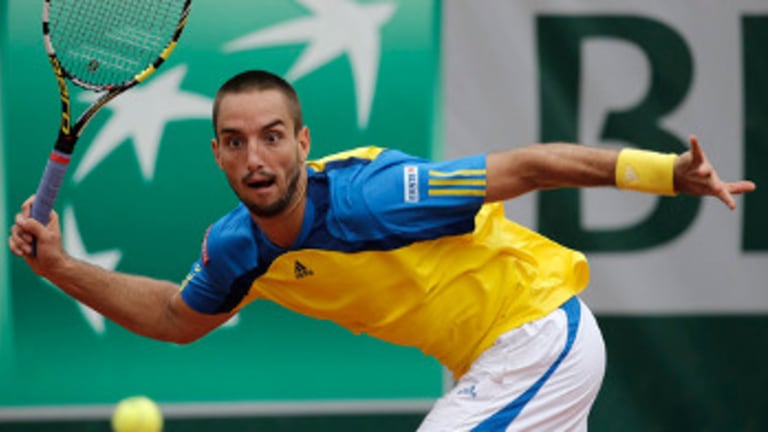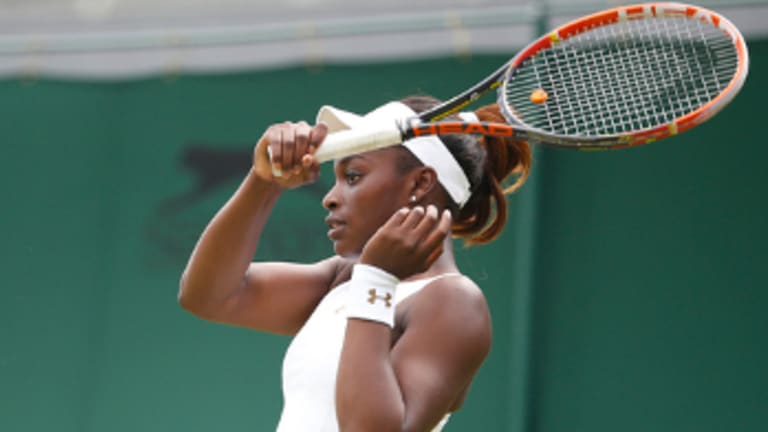Another week, another teenager makes his mark on the ATP tour. The trend started with 19-year-old Nick Kyrgios’s lights-out run to the Wimbledon quarterfinals; continued last week with 17-year-old Alexander Zverev’s march to the semis in Hamburg; and has now moved to Umag, where today Croatia’s Borna Coric, also 17, won his second match, in straight sets over Horacio Zeballos.
How does Coric compare to Kyrgios and Zverev? To start, he’s the shortest of the three (so far); Kyrgios is 6’5”, Zverev is 6’4”, Coric is 6’1”. The fact that this can make the latter appear to be on the small side is another indication of how much taller the men’s game has become in the last 10 years—Roger Federer and Rafael Nadal are both listed as 6’1”—and how much taller it may be about to become.
It also makes Coric appear to be the scrappiest of the youth brigade. He has a tendency to fly into brief, demonstrative rages, before pulling himself back together again—not the worst body language for a kid his age. More important is what his attitude does for his game. Where Kyrgios is loose and athletic, and Zverev is wiry and polished, Coric is persistent and resourceful.
Winning the first set over Zeballos today was all about finding a way. At 2-3, Coric he hit an ace to save a break point, and he used his serve to fight back from an early deficit to win a tiebreaker. Afterward, Coric, whose biggest win was a five-set upset of Jerzy Janowicz in Davis Cup earlier this year, said he didn’t play as well as he had in his last match. But he didn’t care, winning anyway he could was what mattered. I like that.
LIke Zverev last week, Coric will enter the Top 200 on Monday. If you’re looking for good omens, Umag is where Rafael Nadal reached his first ATP semifinal, at 17, in 2003.

